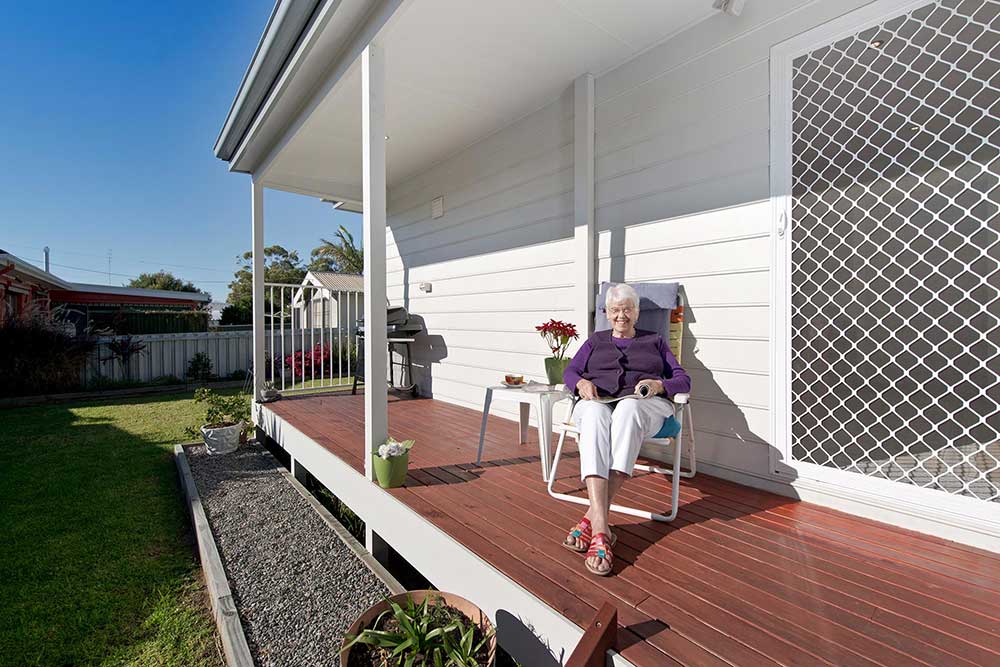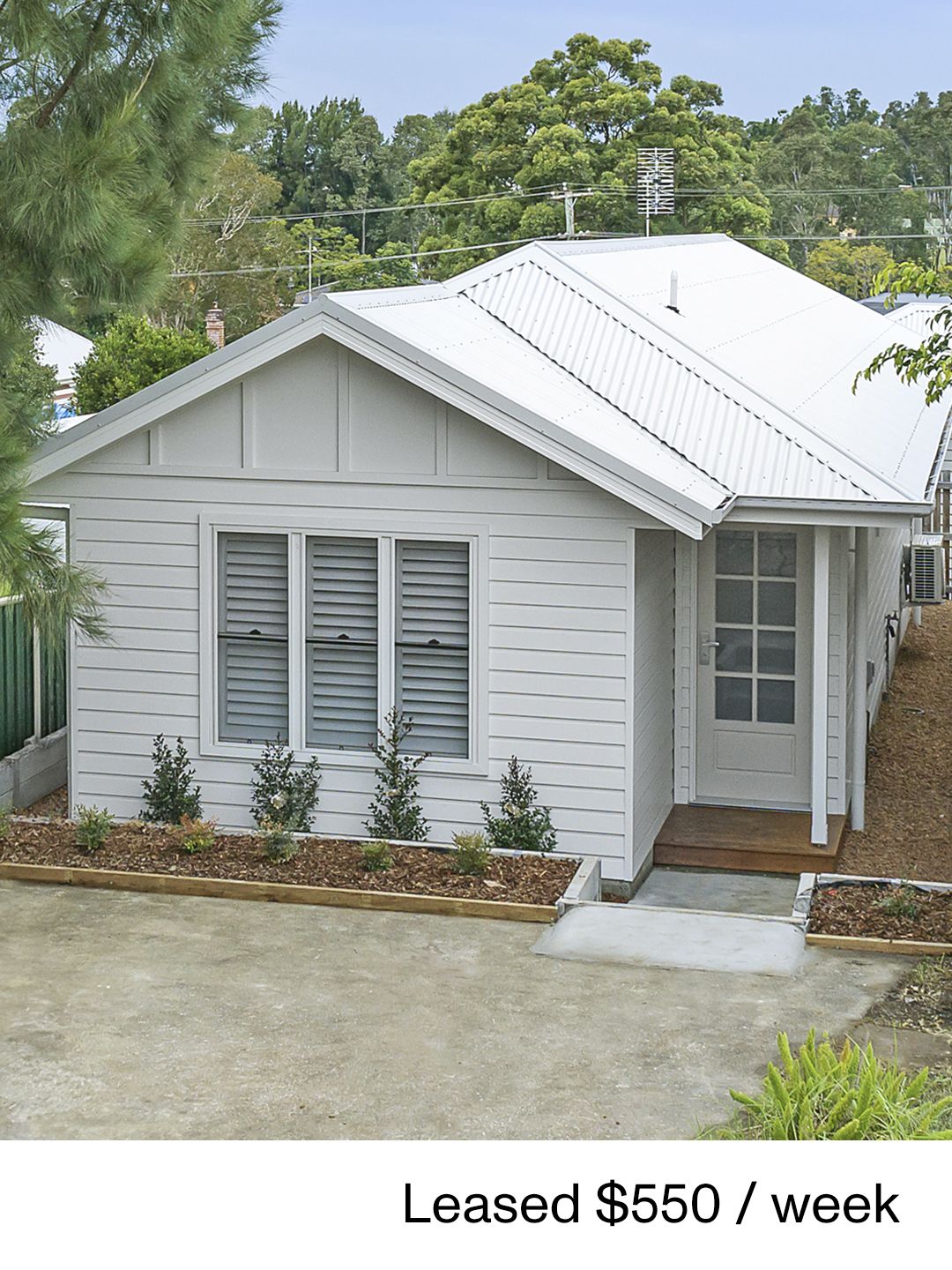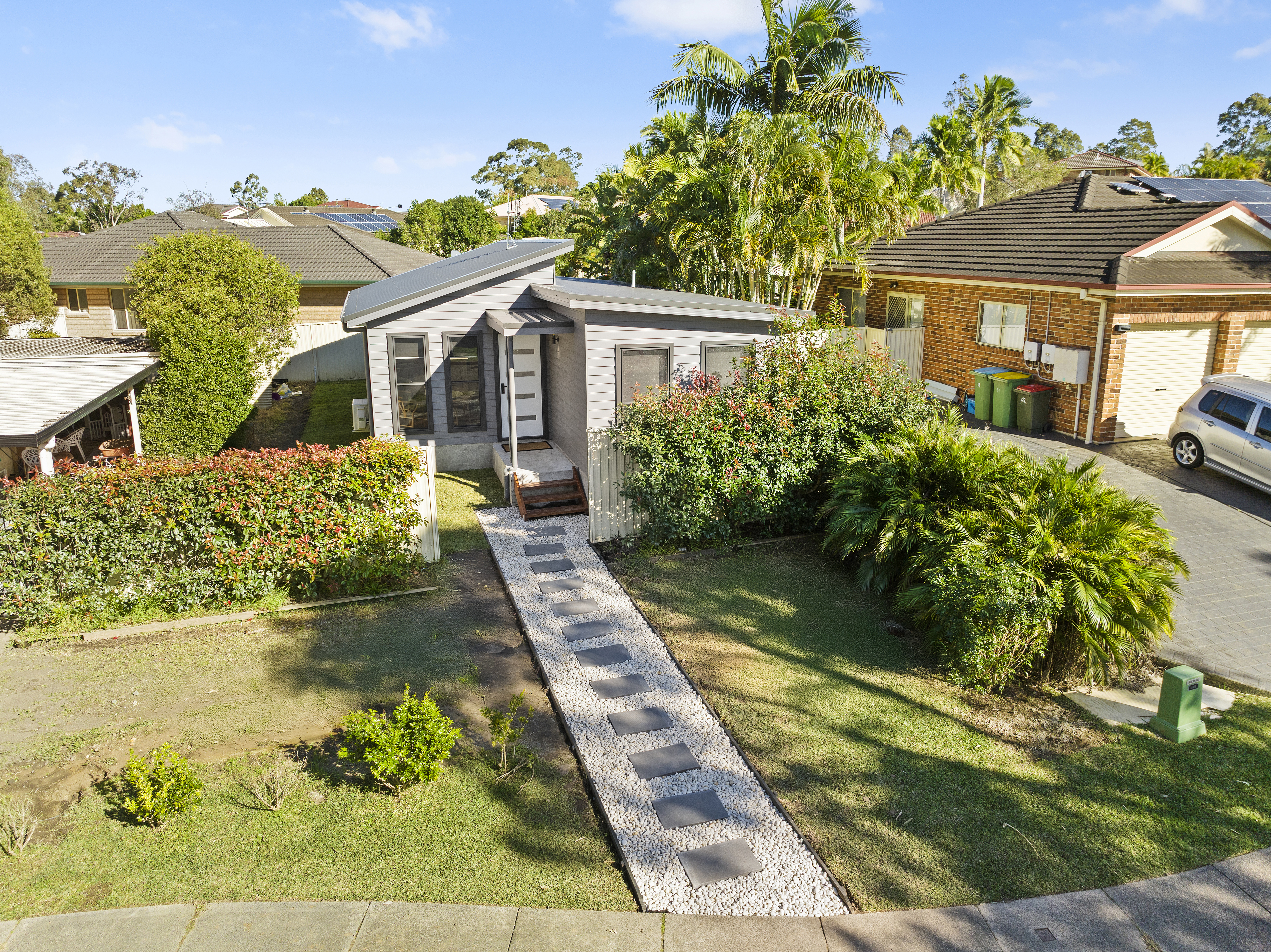How to optimise your granny flat for year-round comfort
Backyard Grannys are the granny flat specialists and take you through how to weatherproof your granny flat in Summer and Winter!
How to optimise your granny flat for year-round comfort
Keeping your granny flat comfortable during the hot summer and chilly winters is essential. The design and materials used during the build can make a big difference once you move in! In this article, we take you through how to weatherproof your granny flat plus potentially saving money on electricity and heating!
Key takeaways
- Optimising enhances a granny flat’s durability, energy efficiency, and comfort.
- Optimising enhances a granny flat’s durability, energy efficiency, and comfort.
- Proper insulation and sealing around windows and doors reduce energy loss.
- null
- Adequate ventilation prevents moisture buildup and mold growth.
- Using weather-resistant materials and coatings protects the structure from harsh weather conditions.
- Consider adding storm windows or shutters for extra protection.
- Ensure the foundation is well-drained to avoid water pooling.
.jpg?width=1875&height=1250&name=elermorevale_small_home_web_05%20(1).jpg)
The basics of how to optimise your granny flat
Weatherproofing your granny flat means protecting it from the elements. Whether it’s blistering sunshine, torrential rain, or chilly winds, you want to create a comfortable environment.
Positioning your granny flat
Positioning is key. Place your daily living areas facing north to make the most of sunlight throughout the year. This helps keep your home warm in winter and cool in summer, reducing the need for artificial heating and cooling.
Backyard Grannys have a range of designs to suit all properties whether they are long narrow blocks, short wide blocks, or even triangular and irregularly shaped blocks that still comply with the standard 60 square metre NSW regulations.
Choosing the right design
A well-planned home design uses natural methods to maintain indoor temperatures. Passive solar heating takes advantage of the sun’s heat during winter, while proper ventilation and air vents help keep your granny flat cool in summer. This reduces energy consumption and cuts down on costs during the project.
Insulation
Insulation is essential. It not only keeps your granny flat cool in summer and warm in winter but helps reduce your energy bills and carbon footprint.
- Fibreglass insulation is common and cost-effective. It’s made from very fine strands of glass woven together and is easy to install. This material fits well between studs and joists, offering solid thermal resistance.
- Foam board insulation is another great option. These rigid panels provide high thermal resistance and can be used in various parts of the structure. They are lightweight and moisture-resistant, making them ideal for areas prone to dampness. While more expensive than fibreglass, foam boards offer higher efficiency in thinner layers.
Roofing and wall cladding
Choose roofing and wall cladding materials wisely. Colorbond metal roofing is popular in Australia for its durability and weather resistance.
Cladding, essentially the ‘skin’ that goes on the outside walls of your granny flat, is extremely important when protecting against the elements. Some popular cladding types include:
WEATHERBOARDS: Fibre Cement Weatherboard is the most common, cost-effective and durable for your granny flat. The range Backyard Grannys uses comes with a 25-year, 100% warranty and is termite and rot-resistant because it is a cement-based product.
BRICK VENEER: This is a very low-maintenance option, with no painting required; however, it is more expensive than traditional cladding.
One important factor to consider when choosing brick veneer for your granny flat is that there is a 2.5m2 space loss due to the thicker cross-section of the wall structure, as opposed to the timber cladding. This is because the granny flats are limited to a total floor area of 60m2, which is measured from the outside walls.
Paints and finishes
Use specialised weatherproof paints and finishes to protect your granny flat from harsh weather. Acrylic paint is popular for exteriors due to its flexibility and resistance to cracking. It forms a protective barrier that withstands sun, rain, and wind.
Elastomeric paint offers even greater flexibility than acrylic. It expands and contracts with the building, preventing damage from temperature fluctuations. This type of paint provides a thick, waterproof coating that is ideal for harsh climates.
Energy-efficient windows
Consider installing energy-efficient windows that allow natural light while keeping your home insulated.
Double-glazed windows reduce the amount of heat entering and leaving through the windows. Keeping the cool or warm air inside the house makes it more energy efficient as you don’t have to run air conditioners or heaters continuously. It can also reduce noise pollution, and it is handy if your granny flat is close to the primary house.
By upgrading your windows, you also enhance the overall security of your granny flat. Double-glazed windows are tougher to break, offering you added peace of mind. Though initially more expensive than single-glazing, the long-term benefits, including energy savings, can outweigh the costs.
Installing quality door and window seals
Quality seals around windows and doors prevent drafts and keep the elements out. Rubber or silicone-based seals are durable and offer excellent insulation properties which is why Backyard Grannys uses them on all our designs.
Clearing gutter systems
Regular maintenance of gutter systems is vital to avoid water damage. Blocked gutters can cause water to overflow, leading to leaks inside your granny flat. Make sure you remove leaves, twigs, and other debris from the gutters.
Installing gutter guards can help reduce the frequency of cleanings by blocking debris while allowing water to flow. Check and clean downspouts to ensure they direct water away from the foundation.
Improving soil drainage
Improving soil drainage around your granny flat is essential for preventing water from accumulating near the foundation. Start by grading the land so that it slopes away from the structure. This helps direct water away, reducing the risk of water logging around the building.
Consider installing French drains to manage water. These drains redirect water away from low-lying areas, preventing pooling and soil erosion. Permeable pavers are another great option. They allow water to seep through, reducing the risk of erosion and improving soil health.
Avoid planting trees or large shrubs near drainage components, as roots can infiltrate pipes, causing blockages. Regularly inspect drainage systems to ensure they are clear and functioning properly. Promptly address any issues, such as leaks or clogs, to maintain effective drainage and keep your granny flat and dry.
Ready to talk to the specialists at Backyard Grannys?
When optimising your granny flat, choosing materials that provide excellent insulation, effective sealing, and durable finishes is important. This helps keep your flat warm in winter, cool in summer, and protected from the elements year-round.
Backyard Grannys are the granny flat specialists, with over 10 years of expertise and 1000+ successful projects completed. Our team can help you build the perfect solution with an extensive range of custom designs including 1, 2 and 3-bedroom granny flats, plus 2-storey designs.
Our team builds granny flats exclusively and can help you through each stage of the process—from design conception to regulation and approvals to construction. To learn more about our designs, you can visit a display home near you or take a virtual tour!
Got a question for us?
Don't hesitate to get in touch.Related resources

Keeping family close: building a granny flat for ageing parents
Discover how building a granny flat for ageing parents can keep family close, provide independence, and add value to your property. Learn more with Backyard Grannys.
General tips Read more
How to earn rental income from a granny flat in NSW
If you’re thinking about renting out your granny flat in NSW, here’s a clear, step-by-step guide to help you get started.
Investment Read more
Top 10 mistakes to avoid when planning your granny flat
Planning a granny flat? Avoid costly mistakes with our guide to the top 10 things to consider before you build. Expert tips for design, approvals, and building in NSW.
General tips Read more-21.jpg)
